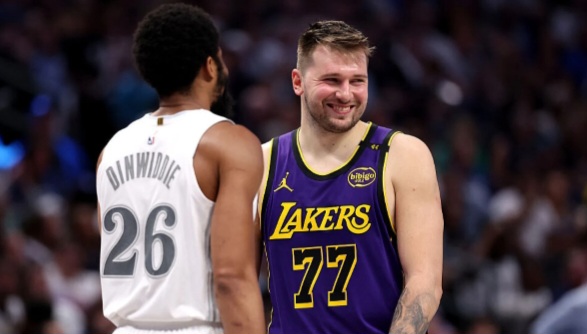The young basketball savant sat stoically, in his first game back to Dallas—the team that suddenly and shockingly traded the 26-year-old Slovenian superstar earlier this season to the Lakers. Doncic, who had made Dallas his home when the Mavericks drafted him at the age of 18, awaited a tribute video the Mavericks had put together to thank him.
The video started playing on the large screen above. Doncic watched silently.
Then, he wept.
“So many emotions,” Doncic went on to say after the game. “It brought tears to my eyes.”
Although he’s played well for the Lakers, Doncic has repeatedly spoken of his struggles leaving the team, the fans, and the city he loved. Somehow, Doncic was able to manage his emotions and put on a basketball master class in which he scored 45 points against his former team. (Doncic became only the second player in NBA history to score 45 points both for and against the same team in a single season.)
So, how did he do it?
In two interviews following the game, a visibly emotional Doncic shared insight into his thoughts and feelings. Interestingly, he kept repeating the same three-word phrase:
“Everybody had my back.”
“All my teammates had my back. They really supported me.”
“They all had my back. That’s what we talked about before the game and everybody had my back—from coaches to players.”
Did you catch the phrase? Doncic said he felt secure because others “had my back.”
This three-word phrase highlights some key learnings in the study of emotional intelligence, specifically in how successful people build resilience—and how leaders can help build resilience in others.

